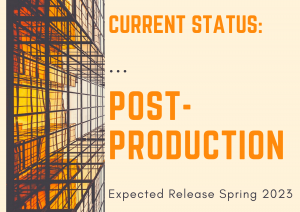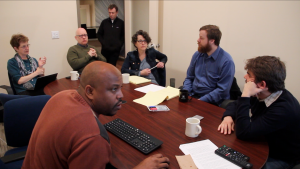 The MRP team meets in Boston at the Center for Mind and Culture (CMAC), with four humanities scholars to help the scholars build computer models. The theme of the meeting is “human simulation,” as each humanities scholar will simulate significant academic theories.
The MRP team meets in Boston at the Center for Mind and Culture (CMAC), with four humanities scholars to help the scholars build computer models. The theme of the meeting is “human simulation,” as each humanities scholar will simulate significant academic theories.
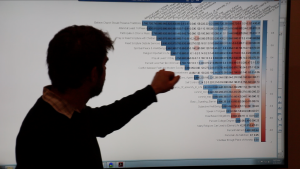 A historian works to compare theoretical predictions of growth of religious groups with the actual growth of these groups over time, and uses this data to better align theory and reality. A cross-cultural psychologist works to understand foreign language acquisition in the context of immigration by challenging existing ideas with new theories. This model considers the ages of immigrants and the complexities of language, among other factors, and asks what policies could be implemented by policymakers to assist in language acquisition.
A historian works to compare theoretical predictions of growth of religious groups with the actual growth of these groups over time, and uses this data to better align theory and reality. A cross-cultural psychologist works to understand foreign language acquisition in the context of immigration by challenging existing ideas with new theories. This model considers the ages of immigrants and the complexities of language, among other factors, and asks what policies could be implemented by policymakers to assist in language acquisition.
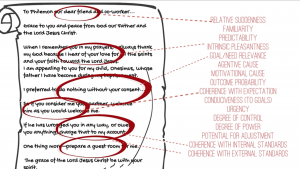 A New Testament scholar works to understand emotional appraisals people make when reading sacred texts, how these emotional appraisals affect people’s interpretations and interactions, and how these emotions of past events can be simulated.
A New Testament scholar works to understand emotional appraisals people make when reading sacred texts, how these emotional appraisals affect people’s interpretations and interactions, and how these emotions of past events can be simulated.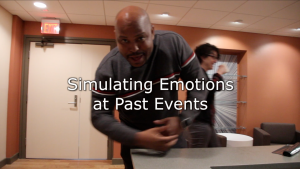
A philosopher works to understand empathy as a crucial part of the evolution of the human species and why people of different cultures have created complex, dynamic societies. This model simulates the function of empathy in religion and tests which cultural, economic, and political factors modulate people’s empathetic responses. Another comparative religions scholar harnesses the power of a model to compare the rise of Confucianism and of Kabbalistic Judaism to analyze how people interact similarly across sociohistorical contexts, especially in how they respond to environmental pressures such as political upheaval, which can lead to the creation of new theologies.
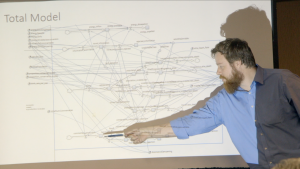
The humanities scholars reflect on the power of modeling within their own studies and one MRP team member, Wesley, affirms that people are becoming more interested in the work the MRP team is doing with simulation and modeling.

